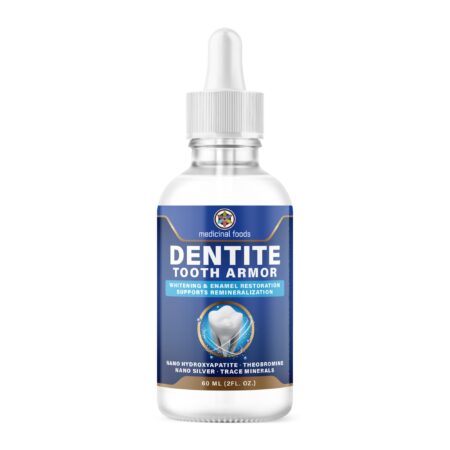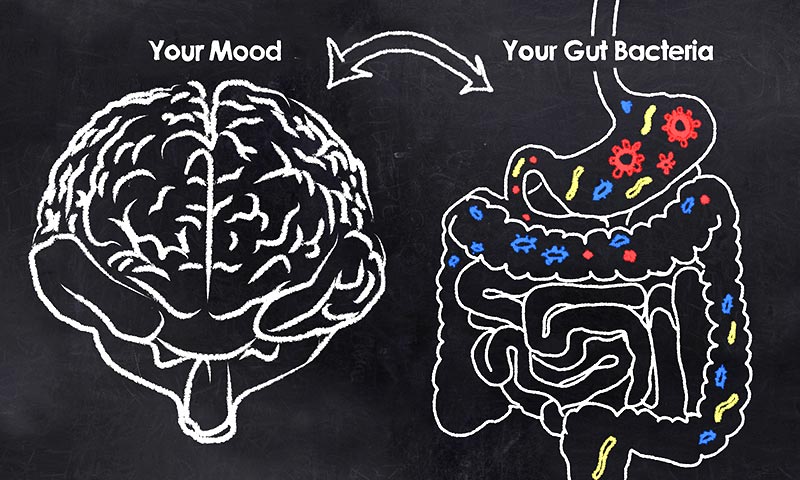
With over 500 million neurons, your gut is like a second brain and controls a lot more of your thoughts and actions than you may realize.
“You are what you eat,” they say. Let’s expand that old saying to read: You think, feel, and do, what you eat.
That’s the power of the gut!
The Gut-Brain Axis is the connection between brain function — your mood, your motivation, intelligence, outlook, motor skills, speech, thoughts, etc — and your digestive system — your stomach, colon, small intestine, liver, pancreas, etc.
A whopping 90% of communication between the gut and the brain travels upwards — the gut is the most vocal of the two! And if you’re eating too much of the wrong foods, the brain may be prone to faster deterioration.
Is your brain being bombarded with unpleasant messages from your gut?
Could your gut be the culprit causing many of your unwanted thoughts, doubts, mood swings, and more?
Are the foods you are eating, dictating your life without you even knowing?

Time for a GUT CHECK!
The wellness of your gut affects the wellness of your brain: What you are thinking is closely related to what foods you are digesting.
Basically, if you are feeling anger or stress about some external circumstance, these feelings could be exacerbated by your gut being in a poor state of health.
If you eat unhealthy, sugary, processed foods, you may feel it in your mood; exemplified by depression, doubt, confusion, anger, or apathy — even if everything else in your life may be going well!
We really are what we eat!
Today, we begin the journey to balance the gut-brain connection inside of us; to cleanse and align our inner being with our brain; to stop eating the foods that are causing the most harm, and replace them with healthier options.
We are in fact, by design, a magnificent creation full of potential — health and wellness is our natural state — sometimes all we need is a little more knowledge and awareness to get us moving along the path to optimum health…
Let’s digest these Gut-Brain topics:
- Section 1: Everything is Connected. Our body, like the universe, is made up of systems; agglomerations of parts that together make up larger wholes.
- Section 2: Gut-Brain Connection Science & The Worse Foods to Eat. This stuff isn’t just touchy-feely gibberish; no my friend, rigid science is behind these incredible findings!
- Section 3: Harmonizing the Gut — Gut ‘er done! Beyond probiotics and correct food choices, try an easy Colon Cleanse.
- Section 4: Improving the Brain — Brain New! The mind is a field of energies and one of life’s many arts, is harmonizing our thoughts, emotions, and inclinations towards our well being.
- Section 5: All Systems Go! All systems harmonized, form good habits, proceed to live joyously, consciously!
Section 1: Everything is Connected (Especially within Your Body)
If there ever was one simple, obvious truth: it is the connectivity of all things.
♪ ♫ The hip bone’s connected to the thigh bone… ♪ ♫ … wait, never mind.
But yes, everything is connected.
Certainly, there are divisions — discontinuities which allow us to differentiate any one thing from any other thing — but any two "separate" things are still connected. This phenomenon has been called the butterfly effect.

There are various degrees that any one thing may be connected to another; it is the strength of the connection that determines what effects are felt, how one entity (or organ) may affect another:
A butterfly beats its wings, hovering amongst the reeds on the flood plains of India… and you notice it not (unless you are a guru) —
However, there is a molecular continuation of energy, a web of action that touches everything in existence; energy transfer flows in all directions from any kind of movement, no matter how small, no matter how great the distance — but what instrument can measure it?
You in a quiet park relaxing — laying on a blanket in the shade of a tree on a pleasant and sunny day, your eyes are closed as you rest — an enormous, Blue Monarch Butterfly hovers just above your nose — you notice a slight tickling sensation — you sneeze! — the butterfly is blown away! —
Proximity created a stronger connection between you and the butterfly, even though you and the butterfly are the same things as you were before, many miles apart.
The gut and the brain are very, very close to one another: in Proximity and in Functional Relationship.
A butterfly in your stomach flutters up into your mind and thought waves go reverberating to and fro — Do you feel like this sometimes?
Section 2: Gut-Brain Connection Science (and The Worse Foods to Eat)
The brain sends electrical-chemical signals to the organs and the organs also send like signals to the brain; the pulses are felt, the messages received; in the language that our internal selves speaks — a sort of Morse Code for our conscious, inner entities?
It’s hard to believe, but adults have around 60,000 miles of nerve fibers running throughout our bodies; and the electrical signals within them carry information at speeds of 170mph.
The Vagus Nerve: The Physical Conduit that Facilitates the Gut-Brain Connection
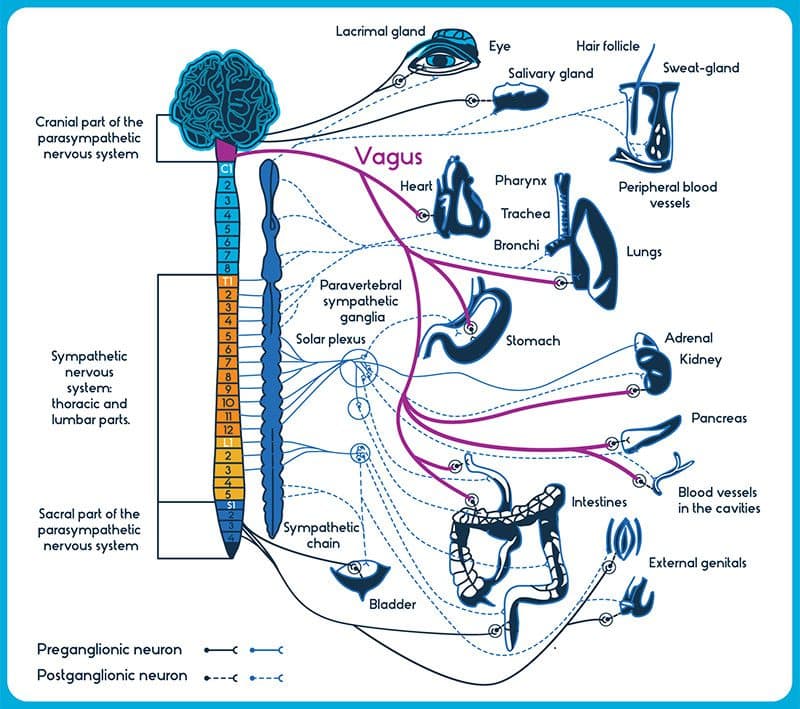
Scientist have discovered the importance of the Vagus Nerve (also called the pneumogastric nerve), which forms a direct connection between the brain, stomach, pancreas, and the intestines — the Vagus Nerve also connects directly to the heart, lungs, and kidneys.
Again, 90% of Vagus Nerve signals from the gut travel upwards; from the gut to the brain. Our brain learns a lot about the outer environment from our gut. This gut-brain relationship began way back in the womb; an important communication process was taking place before we were even born. Indeed, what nutrients were available and what toxins were present, helped to determine how the brain and body developed, and how they would adapt to the outer environment.
The Brain Interprets and Reacts to the Microscopic Universe within the Gut
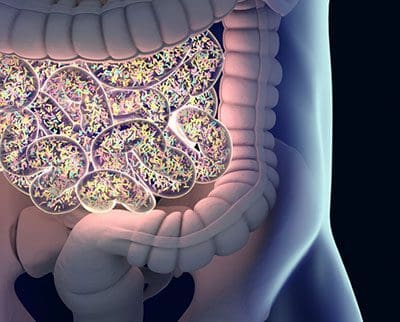
Within the gut is a microscopic universe, filled with billions of bacterial colonies all doing their duties. Without the presence of these microbes, we would not be able to breakdown food to the microscopic level of absorbable nutrients needed to pass from our gut into our blood.
There’s a whole lot of these microbes; they make up an astonishing 90% of cellular life within our guts, the other 10% are cells created by our own body.
We are dependent upon the good kind of bacterias, often called Probiotics, for digestion.
Throughout the formation of the human species, we have been ingesting bacteria and have formed a symbiotic relationship with these microbes. These beneficial bacteria were consumed naturally because they were present on the foods we ate.
Today however, with the over-sterilization, processing, and pasteurizing of foods, we no longer consume enough of these beneficial bacteria. Now, we need to specifically seek them out in fermented foods such as unpasteurized yogurt, kefir, kombucha, sauerkraut; in supplements such as probiotic capsules; or in probiotic-based products such as our Organic Living Greens with Probiotics.
Harmful bacteria and yeasts can also colonize our stomach and colon, causing sickness, disease, and can even affect our brain’s temperament — causing mood swings and depression.
The harmful bacteria, which lead to Gut and Brain deterioration, can proliferate within us when we eat the wrong kinds of foods.
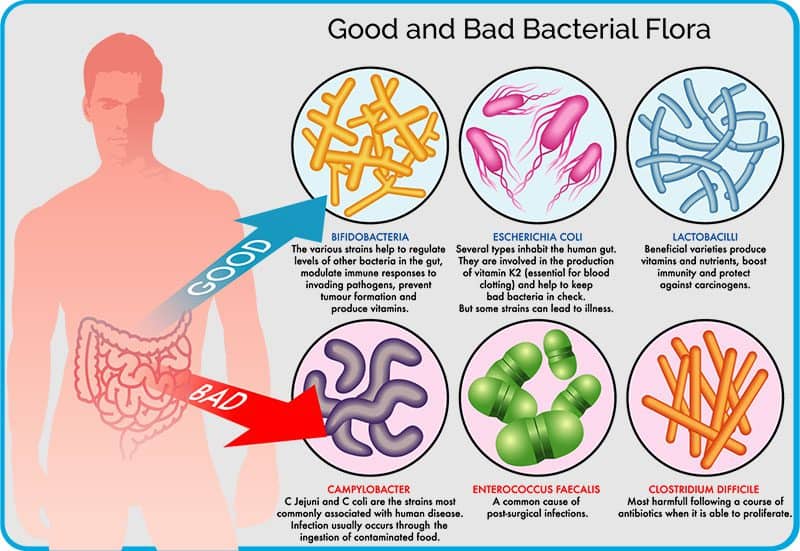
It is important to consume probiotics to protect our gut health. When there is plenty of good bacteria present, there isn’t any room for the bad bacteria to grow. It’s like having a hotel booked-full with top clientele, there’s no vacancy for unwanted guests.
It is also good to reduce sugar intake and take a natural remedy such as Vitae Elixxir to help eliminate harmful yeast called candidas. Candidas yeast can send counter-intelligence signals to the brain, stimulating us to consume even more sugar and unhealthy foods, even though that is not what our body needs to be healthy; instead, it’s what the yeast need to grow and expand their grip-hold on us even more.
A healthy gut is one that is plentiful with good, probiotic bacteria. An unhealthy gut is out of balance and has been infiltrated with many bad kinds of bacteria, and possibly with even larger parasites as well.
According to Harvard Medicine, an unhealthy gut (colonized by bad bacteria) can cause the following symptoms:
Emotional symptoms
- Trouble relaxing
- Nervousness
- Quick temper
- Depression
- Poor concentration
- Trouble remembering things
- Loss of sense of humor
- Indecisiveness
- Crying
- Overwhelming sense of tension or pressure
Behavioral symptoms
- Procrastination
- Grinding teeth
- Difficulty completing work assignments
- Changes in the amount of alcohol or food you consume
- Taking up smoking, or smoking more than usual
- Increased desire to be with or withdraw from others
- Rumination (frequent talking or brooding about stressful situations)
Physical symptoms
- Stiff or tense muscles, especially in the neck and shoulders
- Headaches
- Sleep problems
- Shakiness or tremors
- Recent loss of interest in sex
- Weight loss or gain
- Restlessness
Government Research Suggests that an Unhealthy Gut can Influence Susceptibility to Alzheimer’s Disease:
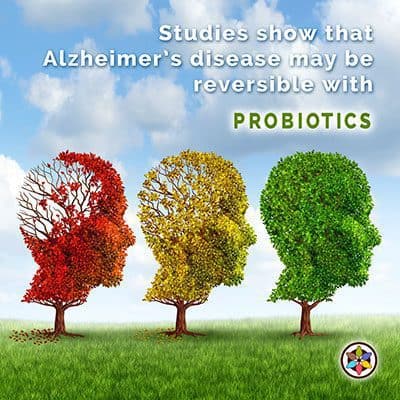
Alzheimer’s is a progressive inflammatory disease of the brain that destroys memory and other important mental functions. Unhealthy alterations in gut microbiota puts harmful stress on the central nervous system through negative signals transmitted to the brain through the Vagus Nerve. And as announced in the follow government research paper, bad gut bacteria can then cause inflammation in the brain and contribute to brain disorders such as Alzheimer’s disease.
Another study shows that elderly Alzheimer’s patients with poor gut microbiota who were given probiotics to improve their intestinal flora, had reduced swelling in the brain and reversed signs of the disease. The elderly patients regained memory and brain functions.
These are huge medical breakthrough and may help to reverse and eliminate Alzheimer’s disease, which before had no known cure. We need to eat the right foods in order to protect our gut bacteria, which in turn helps to protect our brains.
And now, the [Most Important Foods](/gut-health/foods/) to Avoid because they can lead to Gut-Brain Deterioration, Mood Swings, & Alzheimer’s are:
- Processed FoodsThey’re hardly real food anymore! The real nutrients are lost; the enzymes and probiotics have been destroyed; replaced with all kinds of chemical preservatives and emulsifiers that are foreign to your body’s natural state.Processed foods create an environment where harmful microbes can create many forms of inflammatory disease [1].And a study found [2] that emulsifiers promote the development of gut inflammation; emulsifiers go by so many different names that it’s easer just to avoid processed foods.
- Red Meat & Processed MeatsRed meat sits in our gut rotting away because it takes so long to digest.The Harvard School of Public Health stated that an extra daily serving of unprocessed red meat (steak, hamburger, pork, etc.) increased the risk of dying prematurely by 13% and that processed red meat (hot dogs, sausage, bacon, and the like) further increased the risk by 20%. Results published in the Archives of Internal Medicine [3].In another study, just the short-term consumption of meat was found to change the bacterial makeup within the gut, causing an increase in Bilophila wadsworthia, a microorganism capable of triggering inflammatory bowel disease [4].
- Trans-Fatty Acids (Partially Hydrogenated Oils)High quantities of Trans-Fatty Acids can increase gut inflammation, and symptoms of Irritable Bowel Disease [5].
- Sugar & Artificial Sweeteners As with every food in this list, what enters into our digestive system changes the type and amount of microbes that flourish. The quantity of refined sugar in the diet can significantly influence gut function and the composition of gut bacteria [6].
- Gluten
There is much debate surrounding gluten, but some studies show that even in people who do not show signs of gluten sensitivity, there is still auto-immune reaction to wheat, which ultimately causes inflammation in the gut [7].As the basis of almost all disease is some form of prolonged inflammation, reducing or completely eliminated potential inflammatory substances such as gluten may be a smart way to stave off Alzheimer’s, Multiple Sclerosis, and Dementia [8].
Everything is connected: If we take care of our guts, we take care of our brains. Eat less of those harmful foods. Eat more fresh fruits and vegetables, and eat or drink probiotics.
Section 3: Harmonizing the Gut — Gut ‘er done!
Commit to regularly eating Fermented Foods containing Probiotics.
With plentiful, healthy gut flora, we reduce the possibility of bad bacteria and yeast to proliferate within us; thus increasing the efficiency of digestion and the assimilation of nutrients, thwarting gut diseases and irritabilities, and minimizing the harmful effects of inflammation on the body and especially on the central nervous system, which of course includes the brain.
Probiotics are easy to integrate into our diet and come in many tasty forms. You can get probiotics in capsule form, which makes them easy to take in a regulated amount, but I actually prefer eating fermented foods — for the taste, and because I like to eat healthy things.
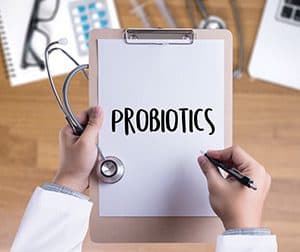
To increase the probiotic composition of your gut, here is a list of 9 fermented foods to incorporate into your diet:
- Living Greens Probiotic Green Drink — mix with water, juice, or whip up fancy probiotic drinks and smoothies such as this Probiotic Hawaiian Sunshine Soda or Turmeric Superfood Probiotic Wellness Blend
- Unpasteurized Yogurt — be sure it is unpasteurized, pasteurization kills the beneficial lactobacilli bacteria that ferment the milk into yogurt.
- Sauerkraut — it is chalk full of lactic acid bacteria such as Leuconostoc mesenteroides, Lactobacillus brevis, Pediococcus pentosaceus, and Lactobacillus plantarum.
- Kombucha — there is much mystery surrounding this fermented drink, no one really knows its origins, but China is where most evidence points. The drink is brewed by placing a Kombucha SCOBY (Symbiotic Culture of Bacteria and Yeast) into a batch of sweetened black or green tea. Once only a home-brewer’s healthy hobby, the Kombucha industry is now regulated and its biggest player GT’s sold $350 million worth in 2014; in 2016 PepsiCo bought KeVita for approximately $200 million.
- Kefir — even though yogurt is one of the most popular probiotic foods in western culture, Kefir is a [more potent probiotic](https://medicinal-foods.com/probiotics/benefits-of/) because it contains many more strains of beneficial bacteria; up to 30 in some cases. Lactobacillus kefiri is one of them, and along with the energizing carbohydrate kefiran, Kefir may help protect the gut from invasion of harmful bacteria.
- Miso — Miso soup is made from fermenting soy beans and other vegetables with the beneficial bacterial culture called “koji” (Aspergillus oryzae). Not all miso contains probiotics so be sure to check your source.
- Sourdough Bread — can be better for you than non-fermented breads because the bacteria have broken down many of the sugars and gluten during the fermentation process.
- Fermented Pickles — not all pickles are fermented, some are just pickled. It’s easy to ferment your own batch, here is a great recipe for Lacto-Fermented Kosher Dill Pickles.
- Fermented Tempeh — Tempeh is a form of soy beans that have been fermented, which makes digestion easier and provides essential probiotics.
Regular Colon Cleansing
Cleansing the colon will release toxins and improve digestive health. A colon cleanse is easy, not difficult at all, in fact, it can even be fun and delicious using one of our many Chia Seed Recipes.
Section 4: Improving the Brain — Be Brain New!
A negative state of mind can cause irritable bowel syndrome, diarrhea, gastric problems and can lead to ulcers.
The gut has so much influence on the brain, but the brain can also influence the gut. So it is important to give our state of mind its due attention as well.
 Even if the food you are eating is perfectly healthy, an upset state of mind, full of stress and anxiety, can turn your food into an "unhappy meal."
Even if the food you are eating is perfectly healthy, an upset state of mind, full of stress and anxiety, can turn your food into an "unhappy meal."
According to Harvard Medicine on stress and its effects on the gut: Functional gastrointestinal disorders affect 35% to 70% of people at some point in life, women more often than men. These disorders have no apparent physical cause — such as infection or cancer — yet result in pain, bloating, and other discomfort.
Here are 5 suggestions for helping you to keep a calm state of mind:
- Breath, Meditation, Yoga
Breathing is such a simple tool for relaxation that it often goes overlooked. Oxygen is our primary nourishment, we can barely go 3 minutes without breathing before we face mortal risk; breath is principle. We can go almost 3 days without water and 3 weeks without food before we face similar risks, so why don’t we pay more attention to how we breathe when it is breath that is our principle sustenance? Meditation and Yoga exercises put emphasis on our breathing, they are exercises that require attention to breath. Take care of your lung health and give attention to your breath with Kapalabhati breathing exercises. - Positive Outlook & Affirmations
Emotional stress can build up within us; day in and day out we are faced with challenges that may trigger feelings inside us. We must be able to let go, discharge, forgive, and move forward — to be born anew each day as a child is free of worries — that is true emotional health. - Someone to Confide In
Why do we stay so bottled up with our worries and feelings when quite often those around us are facing the same sort of internal issues. It can be such a relief to have a sounding board, a person to communicate with, who let’s us know that we are not alone. - Eating Healthier
As we’ve covered, the foods we eat affect the state of our brain and the types of thoughts we have. When we eat healthy, non-processed foods, the state of our mind can stay positive more easily. By taking the first steps and consciously choosing to eat healthier foods, we can [begin to break a negative Gut-Brain cycle; where bad foods cause bad thoughts, and bad thoughts lead to eating more bad foods. - Better Sleep
Good sleep is essential to all aspects of good health. The body needs to rest and rejuvenate with adequate time allowed to sleep.
Section 5: All Systems Go! Now make a habit of it.
Everything is connected — including the choices we make and the results shown in our state of health.
The Gut-Brain connection is one of the strongest in our bodies and it is critical that this connection is harmonized in order for us to feel calmness in mind and a healthy body.
Often, the first step is the hardest one to take, but once we start moving along on a new path, our momentum can take us to new heights. It has been said that it takes anywhere between 18 and 254 days to form a new habit, with the average being 66 days, or about two months. So when we look to start changing our habits, we need to look at a step as being a week’s time.

If you can get through a week of eating new probiotic-rich foods, breathing deeply and practicing yoga, holding a positive outlook on life, then you will be one step closer to transforming yourself for the better.
If you begin to see positive results in the first week, you will have even more motivation to push through the following week, and the next. Time flies, before long you’ll find that you have flown into the future; who will you be and where will you be two months from now?
Hopefully, a healthier and happier you; because you took the steps needed along the journey to optimum health.
Want to be notified of new posts and updates? Want to receive our free Bio-hacks e-Book?
Sign-up bellow!


